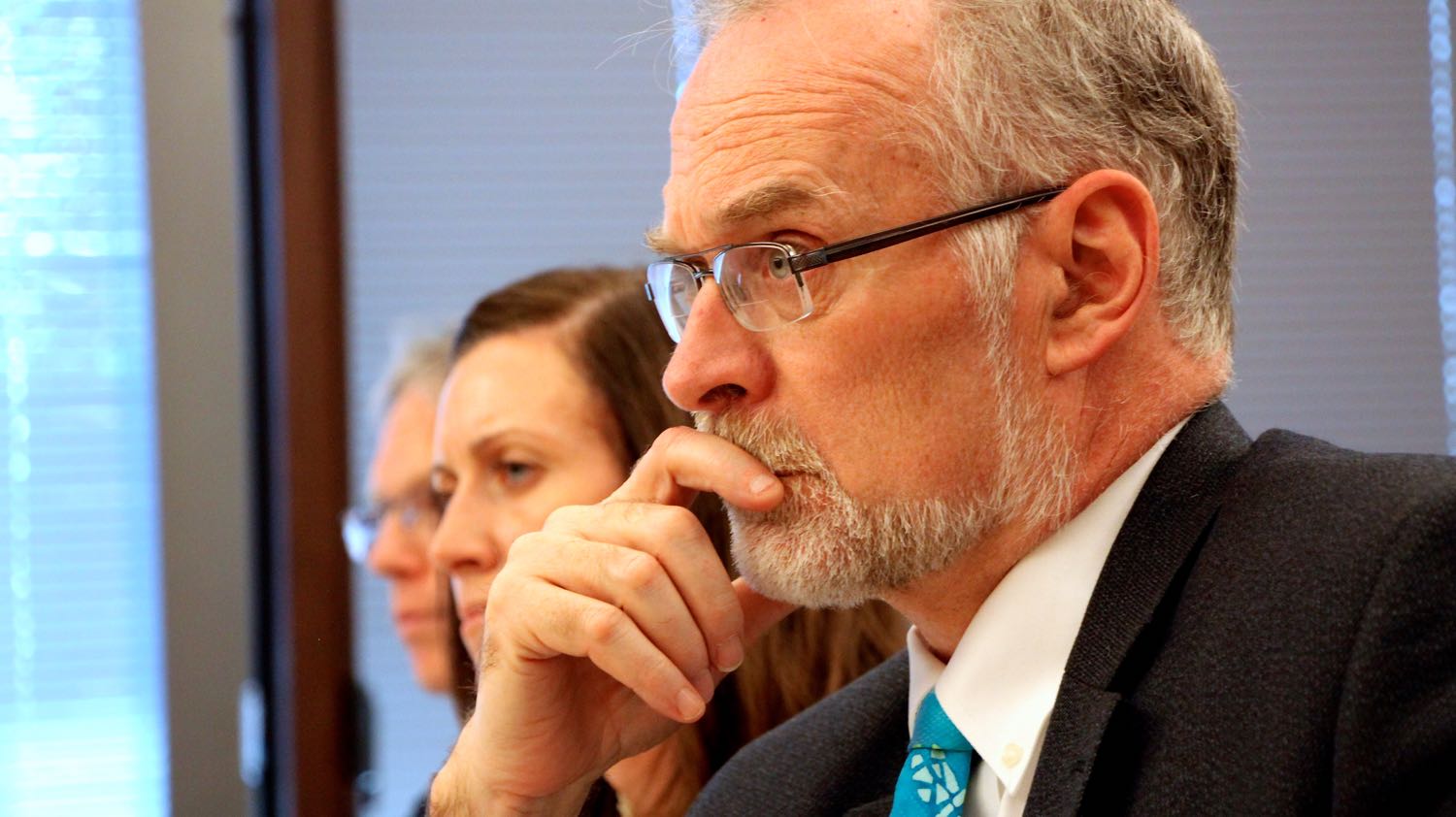The Auditor General of Canada says the mental health of Northwest Territories inmates must become a top priority.
Michael Ferguson, answering questions from MLAs on Wednesday, said he had been ‘surprised’ by a number of mental health issues facing the territory’s corrections service.
And he urged the Department of Justice to do even more than is planned to address his concerns.
March 2015: Not much rehab, not much hope – report damns NWT’s jails
“Mental health is the area where I would say the department needs to do, perhaps, more than they think is necessary,” said Ferguson. “I think it’s a very significant issue.
“When we saw the extent to which the system has to deal with people with mental health issues, as well as those with substance abuse issues – and doesn’t have the trained staff to deal with those serious mental health issues – that was a surprise for us.
“There were a number of things where we said, ‘Is that really the case?’ It was quite surprising.”
Ferguson was taking questions on his office’s audit of corrections in the NWT, a report first published in March.
The NWT Department of Justice has since accepted all of the report’s recommendations and pledged to act.
The report included concerns that inmates received minimal provision of mental health services, with vacancies in the field unfilled, limited staff training, and too little access to the right supports.
In response, the department says it will introduce more resources for Mental Health First Aid training, complete its own review of mental health services by November this year, and research best practice elsewhere.
Department of Justice: ‘We won’t leave this report on the shelf’
Background: Health minister takes Mental Health First Aid course
On Wednesday, MLA Daryl Dolynny queried whether Mental Health First Aid was a sufficient front-line response.
“The concern I have is we’re taking non-professional staff and giving them elementary Mental Health First Aid training,” Dolynny told Ferguson.
“Do you feel this will be sufficient in order to address the recommendation?”
Ferguson replied: “I think it needs to be dealt with from the point of view of, perhaps, almost having overqualified people, rather than underqualified.”
Department of Justice deputy minister Sylvia Haener, asked a similar question by Dolynny, said: “We’re not saying that’s the be-all, end-all solution here. Just like basic first aid, it’s a good, strong and necessary skill for individuals working in that setting.
“Equipping folks at the front line to be able to identify when an individual might be stressed, or might be struggling with mental health issues, is all we’re trying to do.
“We do have three psychologists on staff, and a contract psychologist as well. We are not sure what, exactly, we need in terms of mental health services – we are going to review our capacity to address the mental health needs of inmates, and we haven’t finished that work.”
The Auditor General stressed on several occasions that the Northwest Territories is not alone in struggling to address the mental health of inmates.
His office has recently concluded similar audits of corrections services in Nunavut and Yukon, as well as the federal equivalent.
“A number of the problems are common. The one that really strikes me that they’re all really struggling with is the issue about inmates with mental health issues,” said Ferguson.
‘Geriatric legislation’
Lastly, he added that services outside the Department of Justice’s remit may come under the spotlight in future.
“The work we did here stopped at the point in time that the individual leaves the institution, but there would be other programs and responsibilities once the offender leaves that institution,” said Ferguson.
“That is perhaps the subject of a future audit.”
As representatives of the Department of Justice fielded MLAs’ questions later on Wednesday, Haener acknowledged “the need for change in many areas”. She told politicians: “Considerable work has been undertaken and we look forward to reporting on future progress.”
Haener added that new legislation would need to be introduced to help the department address the many issues raised.
“We’ve already started a review of the Corrections Act,” she said. “It’s what I would call a geriatric piece of legislation and it needs some work.
“An example would be how contraband is referenced in the act – that needs to be updated to assist us.
“That work is well under way and we plan to bring forward revisions to that legislation, early in the life of the next government.”




